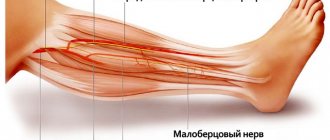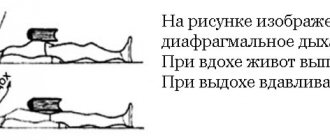Causes of stress
The manifestation of such a disease appears in different ways, depending on the age of the child.
- Up to 2 years. Absence or frequent separation of parents, in particular mothers, change of environment or frequent moves of residence, which negatively affect the daily routine, poor sleep and nutrition.
- Preschool age up to 4 years. The presence of parents and their absence is the main reason. Change of usual habitat, parental divorce, childhood fears, the appearance of a new person (often when parents divorce).
- 4-7 years. At this age, the main reason is going to kindergarten. For the first time, the child is left without his family for a long time. Not the perception of the team and peers. Frequent quarrels between parents.
Preventing stress in adolescents is an important task for parents, teachers, and psychologists. Stress is a part of every person's life. Life without stress is impossible. Minor stress is not dangerous to a person’s health, but if stress significantly affects health, well-being, or causes too many unpleasant emotions, a person needs help.
In adolescents, at about 12 years of age, active hormonal changes begin. Therefore, a violent reaction to even the slightest stress can occur. Many adults know how to properly cope with stress. Teenagers do not have enough experience and willpower to correct the situation on their own, so adults must help. If you do not teach a child at this age to cope with emotional and psychological difficulties, then he will not be able to become an open, harmonious person.
How to help a teenager?
If the situation seems too difficult to parents, you can contact a psychologist. Not every teenager will agree to communicate with a psychologist, in this case a specialist can help parents, give advice on how to behave with a teenager, how to establish contact.
Parents should monitor the condition of their teenage child and if signs of stress appear or to prevent them, follow the recommendations:
- You need to create a comfortable psychological environment at home. Each family member, when a difficult situation arises, should find help and support within the family circle. It is necessary, by example, to teach a child to discuss troubles and problems, even the most intimate ones, at home, and not in dubious company on the street.
- You should adequately assess your child’s abilities, talents and hobbies. When a person does what he enjoys, the likelihood of stress is minimal. There is no need to overload your teenager. It is better to leave one section, the most promising one. Both parents and the teenager himself must understand that the main thing is not records, but harmonious development in all respects.
- Sleep norm for teenagers is 8–10 hours. It is during this time that the body is able to fully recover. Chronic lack of sleep leads to decreased performance and chronic fatigue. You need to go to bed and get up at the same time. Avoiding going to bed angry or too early is not recommended. Using water procedures before bed - a cool shower (slight cooling of the body is one of the elements of the physiology of falling asleep). In some cases, you can use a warm shower (at a comfortable temperature) until you feel slight muscle relaxation. The use of contrasting water procedures, excessively hot or cold baths is not recommended.
- Optimal physical activity. In combination with a change of environment, movement harmonizes the psyche, neutralizes the effects of stress, and helps to calm down. Regular physical activity helps relieve tension and increase the body's endurance to various stresses. Any physical activity in the training regime should be regular and based on the principle:
- 15 minutes. warm up at a light moderate pace,
- 20–30 min. active loads,
- 10–15 min. “warm up” at an easy pace.
- You need to discreetly monitor your child’s daily routine. A teenager should get enough sleep, not sit at the computer for more than 1.5 hours a day, and exercise optimal physical activity. Gymnastics against stress.
1. Shoulder stretch. Stand up straight and put your hands on your shoulders. At the moment when you inhale, raise your elbows as high as possible and tilt your head back. As you exhale, return to the starting position. Repeat this exercise several times to relieve tension in your neck, shoulders and back.
2. Reach for the stars. Stand straight with your feet shoulder-width apart. While inhaling, extend your arms up and stretch as if you are trying to reach the stars. As you exhale, lower and shake your arms, take the starting position. Repeat 5 times. For greater effect from the exercise, try to breathe very deeply and spread your fingers at the moment when you reach up.
3. Slowly inhale and exhale. First, inhale slowly, counting to 4, then, when you count to 4, hold your breath for 5-6 seconds and exhale slowly. Repeat this exercise 5 – 6 times. You can also do this exercise before bed to make it easier to fall asleep later.
- The best way to teach a child to cope with difficulties is by example. You need to be optimistic, not give in to panic, and discuss your problems with your teenager. Sometimes simply talking to teens about stress can produce great results.
- It is imperative to appreciate the successes and merits of a teenager, and to help extract useful experience from failures. This will help avoid an inferiority complex.
Consequences of stress in children
As already mentioned, stress is a natural and inevitable reaction of the body, which to some extent adapts it to new conditions. Thus, the body itself tries to survive. However, prolonged stay in this state will inevitably have negative consequences for the entire holistic biological system.
Negative consequences
Most stress has a negative imprint.
This often manifests itself as follows: Increased susceptibility to disease
. The risk of cardiovascular disease increases fourfold. From 10% to 25% of children, when exposed to stress for a long time, suffer from exacerbation of chronic diseases of internal organs. Even a healthy child often develops gastritis and other problems of the digestive system due to nervousness. The immune system is weakened, and as a result, the risk of infectious diseases increases.
Sleep is disturbed
. Even after short-term stress, for example, insomnia may occur during preparation or after passing exams. As for children under 5 years of age, their condition manifests itself with frequent getting up in the middle of the night, a desire to sleep with their parents, and also a requirement to leave the light on in the room.
Psychological problems appear
. The development of depression, an increased risk of suicide, which is especially pronounced in adolescent children.
Problems with food and its absorption
. Often, children living in regular stress experience excess weight (with an increase in appetite) or, conversely, a catastrophic decrease in weight (when there is no appetite). In the first case, the child “eats” his problems, in the second he is so depressed that his body simply refuses to accept food.
. The hormones adrenaline and cortisol cease to be released in sufficient quantities. As a result, the child will not be able to react correctly in an extreme situation. In a milder version, it may look like failing an exam when fully prepared. In sports, this condition is referred to as “burnt out.”
Positive consequences
The consequences of child stress can also be positive. Usually they are short-term and do not cause as deep damage to the psyche as negative ones.
Nature has thus taken care of developing protective reactions to external stimuli, which allows for faster adaptation. For example, hardening the entire body through dousing is based on this. During sports training, a stressful state allows you to develop the necessary conditioned reflexes. The psyche is strengthened, and it becomes possible to quickly make decisions in emergency situations.
Positive stress occurs not only under the influence of fear or shock from a change in the usual state, but even under an unexpected positive event. For example, if the father returned to the child from a business trip earlier.











